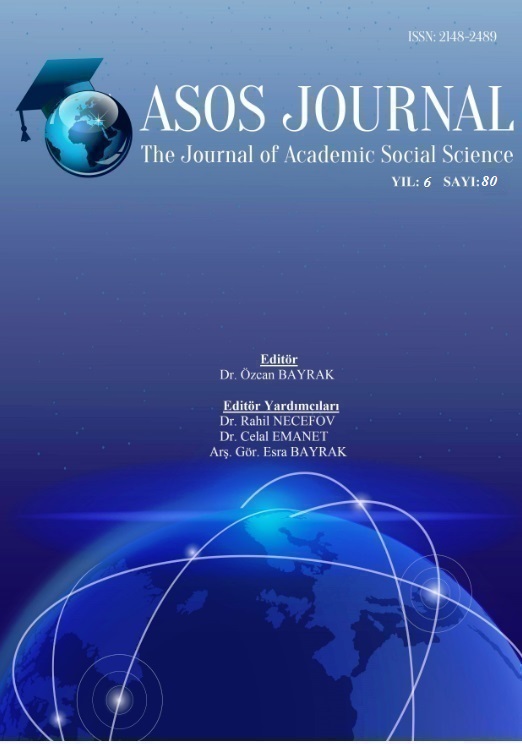Author :
Abstract
Bu çalışmanın amacı Spor eğitimli ve spor eğitimsiz lise öğrencilerinin kişilik özelliklerinin karşılaştırılmasıdır. Güzel sanatlar ve spor lisesinden 110 ve Anadolu lisesinden 118 olmak üzere toplam 228 öğrencinin doldurduğu “sıfatlara dayalı kişilik özellikleri ölçeği” değerlendirilmiştir. Karşılaştırmalarda t- testi, tek yönlü varyans analizi ve LSD testleri kullanılmıştır. Cinsiyete göre kişilik özellikleri dışa dönüklük ve duygu dengesizliğinde anlamlı bir farklılık bulunmamıştır (p>0,05). Cinsiyete göre kişilik özellikleri yumuşak başlılık, sorumluluk ve deneyime açıklık alt boyutlarında erkekler ve kadınlar arasındaki fark istatistiksel olarak anlamlıdır (p<0,05 ve p<0,001). Yaş kategorisine göre sadece deneyim faktöründe anlamlı farklılık bulunmuştur (p<0,05). Spor lisesi öğrencilerinden takım sporu yapanlar ve bireysel spor yapanlar arasında dışa dönüklük alt ölçeğinde takım sporu yapanlar lehine anlamlı farklılık bulunmuştur (p<0,05). Takım sporu ve bireysel spor yapanlar arasında yumuşaklık, sorumluluk, duygu dengesizliği ve deneyim alt ölçeklerinde anlamlı farklılık bulunmamıştır (p>0,05). Kadınlarda adet öncesi, sırası ve sonrası dönemlerde sıfatlara dayalı kişilik özelikleri yumuşak başlılık olma alt ölçeğinde anlamlı farklılık bulunmuştur (p<0,05). Sonuç: lise öğrencilerinde kadınların erkeklere göre deneyime (gelişime) açıklık yumuşak başlılık ve sorumluluk alt boyutlarında daha iyi oldukları söylenebilir. Dışa dönüklük ve duygusal dengesizlik boyutlarında ise farklılık bulunmamıştır. Takım spor yapanların olumlu kişilik özelliklerinin bireysek spor yapan ve hiç spor yapmayanlardan daha iyi olduğu sonucuna varılmıştır. Spor yapmayan öğrencilere spor yaptırma ve bireysel spor yapanlara ise takım sporları ile de ilgilenmeleri önerilebilir.
Keywords
Abstract
The aim of this study is to compare the personal traits of high school students with and without sports training. The scale of 'Personal Traits Based on Characters' filled in by a total of 228 students, 110 from the Fine Arts and Sports High School and 118 from the Anatolian High School, was evaluated. T-test, one-way analysis of variance and LSD tests were used in the comparisons. There was no significant difference in personal traits such as extroversion and emotional instability in terms of gender (p>0,05). The differences between men and women in murkiness, responsibility and openness of experience were statistically significant (p<0,05 and p<0,001). There was a significant difference only in experience factor in terms of age category (p <0,05). Of the sports high school students, there was a significant difference in favour of team athletes when compared with the individual athletes (p<0,05). There was no significant difference in softness, responsibility, emotional instability and experience between the athletes interested in team sports and individual sports (p> 0,05). In women, significant differences were found in the subscale of personal traits based on characters before, during and after menstruation (p <0.05). It can be said that female students in high schools are better than male students in terms of experiential openness, murkiness and responsibility. There was no difference found in extroversion and emotional instability. It is concluded that the positive personal traits of team sportsmen are better than those who do individual sports and do not do any sports at all. It may be advisable for students who do not do any sports to get interested in some sports, and for the ones interested in individual sports to take part in team sports.





